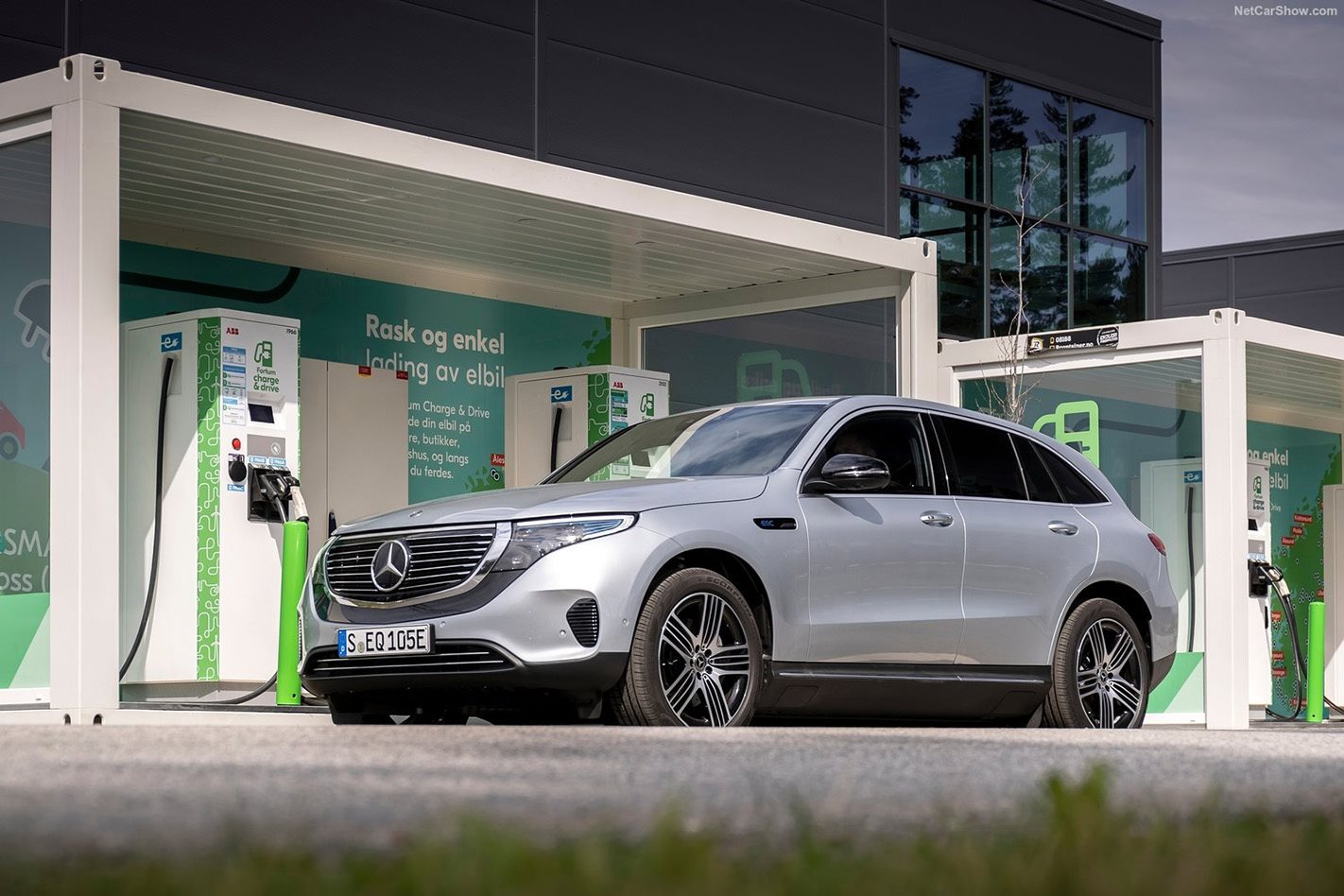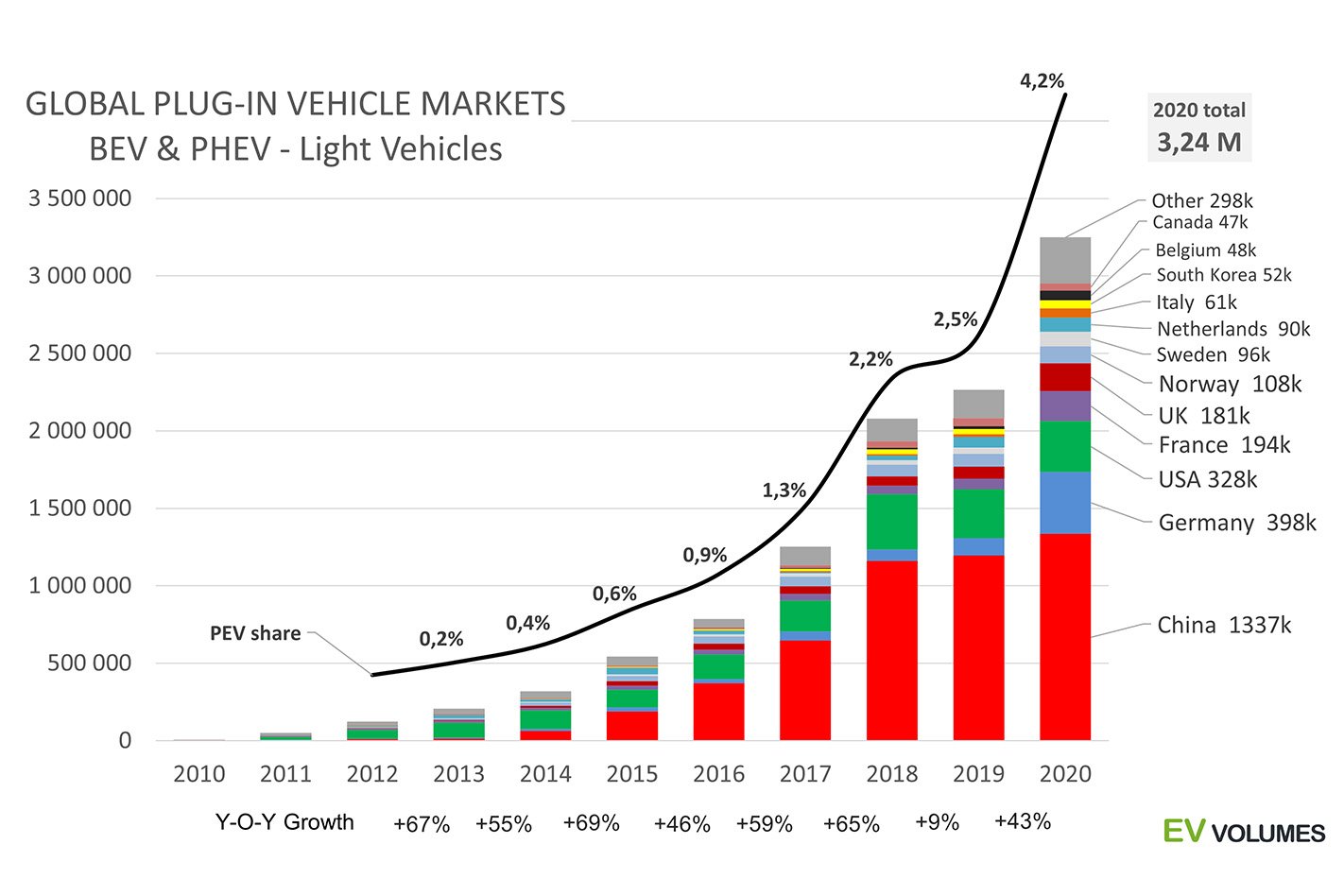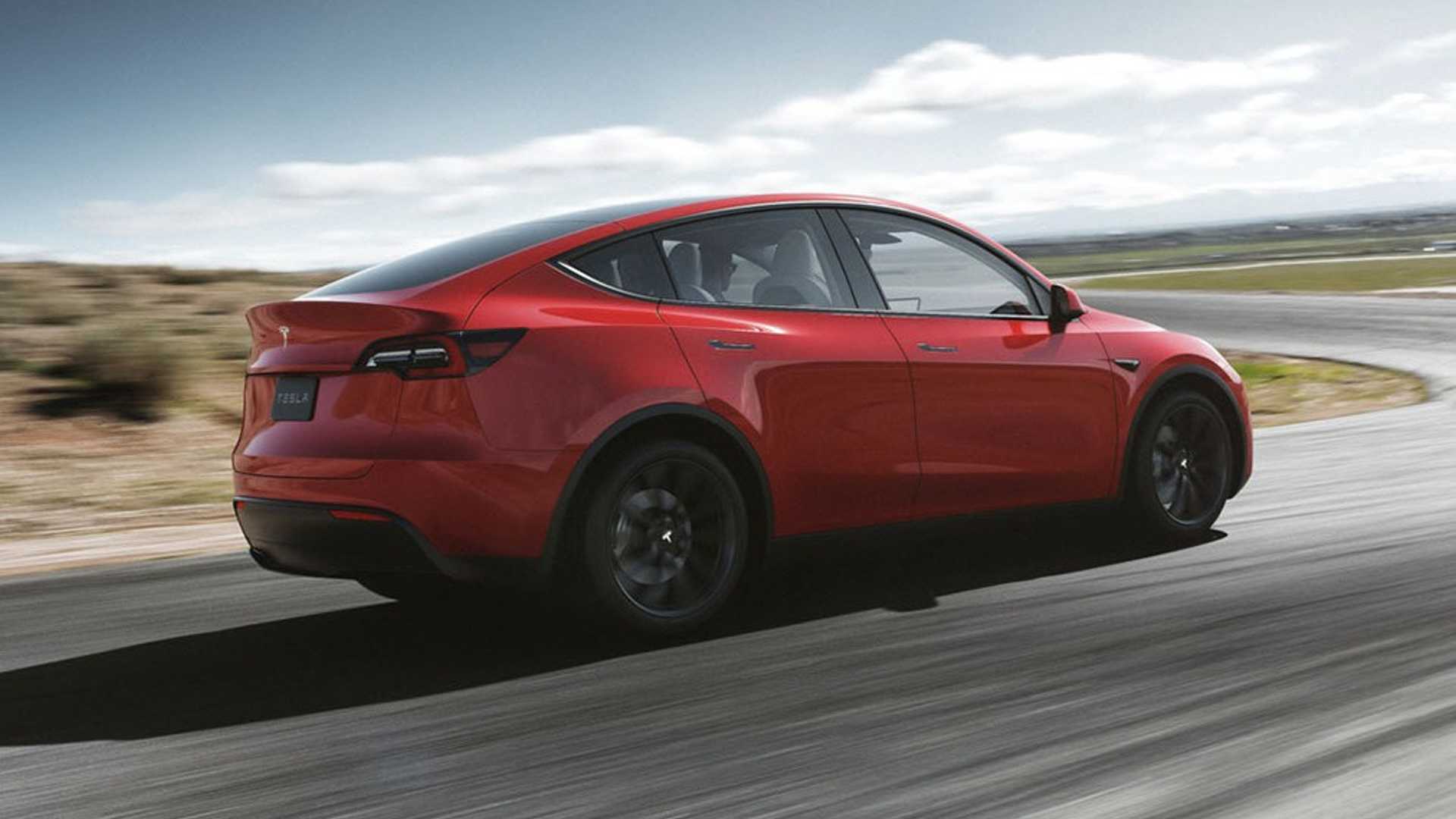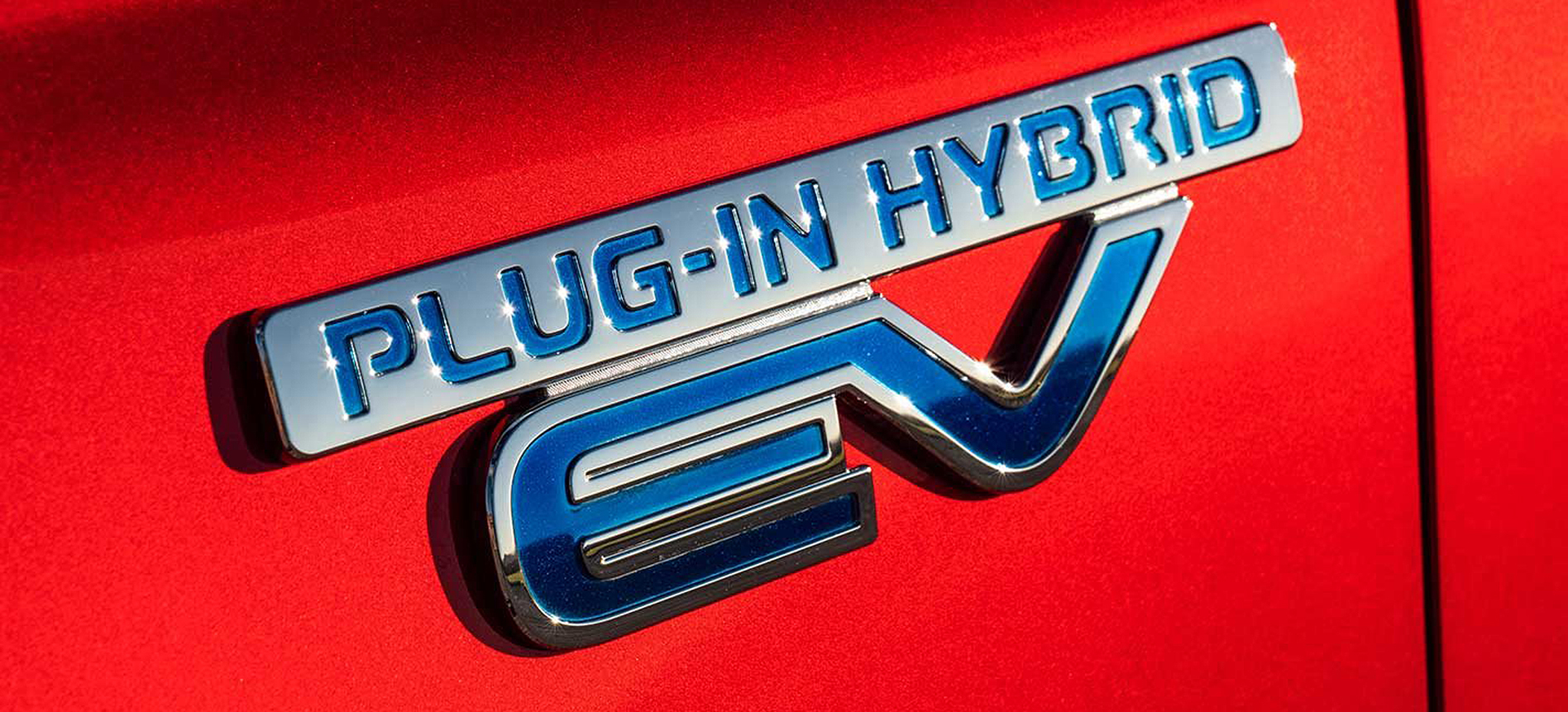
Worldwide plug-in vehicle sales defied the Covid-19-led economic downturn to jump by at least 43 per cent in 2020.
Figures are still being compiled, but it’s expected the final tally will show 3.24 million new battery electric vehicles (BEV) and plug-in hybrid vehicles (PHEV) were sold compared to 2.26 million in 2019, according to a report published by online database EVvolumes.com.
Of these 1.4 million were sold in Europe, with the Continent seeing a 137 per cent increase in EV sales in a year when the overall vehicle market was down 20 per cent.

The leap saw Europe supersede China in terms of EV growth for the first time since 2015.
Europe is also ahead of China in terms of EV market share, having jumped by 3.3 per cent in 2019 and 10.2 per cent in 2020. This includes non-EU countries signed up to the European Free Trade agreement including the UK.
Outside Europe, EV growth was slower in 2020 but still significant. Chinese sales recovered strongly during the second half to be up by 12 per cent while the US increased by just 4.0 per cent despite the relatively affordable Tesla Model Y going on sale.

Not that Tesla had a bad year – it accounted for almost 80 per cent of all BEVs sold in the US in 2020.
Fortunes varied in other markets, with declines in Japan and Canada, while increases in South Korea, Taiwan, India, Israel, UAE and Hong Kong outweighed these losses.
Australia, meanwhile, saw BEV sales rise by 16.2 per cent from 1523 in 2019 to 1769 in 2020, according to the Federal Chamber of Automotive Industries. That figure is actually likely to be closer to 5000 because the FCAI’s VFACTS 2020 sales figures don’t include Tesla, which is believed to have sold around 3000 vehicles in Australia last year.
Plug-in hybrid sales in Australia increased by 18.2 per cent, from 1426 vehicles in 2019 to 1685 vehicles in 2020.

PHEVs also experienced a resurgence around the world after having their first downturn in 2019 brought upon by their emissions rating being switched from the NEDC test cycle to the stricter WLTP in Europe.
This saw CO2 emissions of most PHEVs exceeded the 50g limit for incentives in many European markets as manufacturers scrambled to install larger batteries to increase electric range to meet EV subsidy requirements.
The result was 386,000 PHEVs sold in Europe in 2020, accounting for more than a third of the 990,000 PHEVs sold worldwide. That global figure represents an increase of 410,000, or 71 per cent, over 2019.



